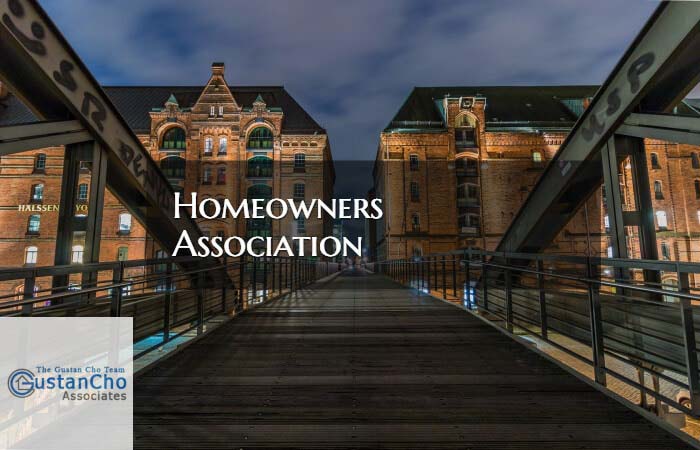Purpose And Fundamentals Of Homeowners Association
Homeowners Association or HOA plays a vital role in many residential communities across the United States. Whether you’re buying your first home or considering moving into a planned development, condo building, or gated neighborhood, understanding how HOAs function and what they’re designed to do is essential. In this article, we’ll explore the purpose, structure, benefits, rules, challenges, and legal fundamentals of homeowners associations so you can make well-informed decisions as a buyer, resident, or real estate professional.
What Is a Homeowners Association (HOA)?
A Homeowners Association (HOA) is a private, nonprofit organization built by a real estate developer or the homeowners themselves to manage and maintain a residential community. HOAs are typically found in planned subdivisions, condominiums, townhome communities, gated neighborhoods, and master-planned developments. Once the community is established, the HOA becomes the governing body responsible for setting rules, collecting dues, maintaining shared areas, and preserving property values.
When Did Homeowners Associations Start In America?
Homeowners associations (HOAs) in America date back to the early 20th century, but they became widespread in the 1960s and 1970s. The earliest versions of HOAs were created in the 1920s and 1930s in exclusive, master-planned communities. These were private arrangements used to control land use and maintain high property standards often through restrictive covenants. After World War II, America saw a massive suburban housing boom. Developers began using HOAs more often to manage shared community features like roads, parks, and landscaping especially in suburban developments with limited municipal services. In 1960s–1970s HOAs become common.
The real rise of modern HOAs began in the 1960s, when Planned Unit Developments (PUDs) became popular, Federal Housing Administration (FHA) and HUD guidelines encouraged private maintenance of community infrastructure, and cities pushed developers to create HOAs as a way to reduce the public burden of maintaining streets, sidewalks, and parks.
HOAs became the default governance structure in many new developments especially in Sunbelt states like California, Florida, Arizona, and Texas. By the 2000s, tens of millions of Americans were living in HOA-managed communities. As of 2024, over 74 million Americans live in communities controlled by HOAs, according to the Community Associations Institute (CAI). HOAs now govern condominiums, townhomes, single-family homes, and master-planned communities across the U.S.
Ready to Learn More About Your Homeowners Association?
Contact us today to get all the information you need about your HOA and how it enhances your community.
The Purpose of a Homeowners Association
Maintain Property Values
One of HOA’s main goals is to protect and improve property values. It focus to create a consistent and appealing environment that helps homes maintain or increase their market value by implementing appearance standards, ensuring timely repairs, and preserving common spaces.
Provide Community Services
Homeowners Association often handle services that would otherwise fall on individual homeowners, including landscaping and lawn maintenance, snow removal and street cleaning, trash and recycling collection, pest control and exterior upkeep, and security patrol or gated entry systems. These shared services reduce the burden on homeowners and create a more efficient, community-wide experience.
Enforce Rules and Regulations
To promote harmony and uniformity, Homeowners Association enforce covenants, conditions, and restrictions (CC&Rs). These legally binding rules govern:
- Home appearance (paint colors, roofing, yard maintenance)
- Noise levels
- Parking and vehicle storage
- Pet ownership
- Home businesses
- Rentals and short-term leasing
- HOAs exist to balance individual freedoms with the good of the collective community.
Manage Shared Amenities
In communities with clubhouses, swimming pools, gyms, or playgrounds, the HOA is responsible for maintaining these shared amenities, setting usage policies, and handling repairs and upgrades.
Foster Community Engagement
Some HOAs promote social events like holiday parties, community garage sales, town hall meetings, and neighborhood watch groups. These activities foster neighbor relationships and enhance the sense of belonging.
The Structure of an HOA
Most HOAs follow a similar organizational structure:
- Board of Directors
The Homeowners Association board is typically elected by the community’s homeowners and consists of a President, Vice President, Secretary, Treasurer, and at-large members (optional). The board oversees daily operations, enforces rules, approves budgets, and makes key decisions on behalf of the association. - Management Company
Many Homeowners Association hire a professional property management company to assist with collecting dues, managing maintenance and repairs, organizing board meetings, enforcing violations, and handling legal compliance. - HOA Committees
Some larger HOAs have committees for specific functions such as landscaping, architectural review, events and social planning, and finance. These allow residents to participate in governance and bring specialized skills to the community.
Objective And Goal Of Homeowner Association
A homeowner association is an entity that is made up of homeowners in the subdivision or condominium project. The officers of the homeowner association are elected by the residents of the housing subdivision or the condominium complex. The homeowner association elected officers are responsible for creating rules and laws pertaining to the standards of the neighborhood and rules expected by its residents. A homeowner belonging to a homeowner association cannot make major changes to their home without approval from the board of directors of the homeowner association.
HOA Fees: What Do They Cover?

Homeowners in an HOA community pay monthly, quarterly, or annual dues. These fees covers maintenance of common areas (lawn care, lighting, roads), utility services (water for landscaping, pool operation), insurance for shared property, repairs and reserves for future expenses, and administrative costs (legal, accounting, management). Special assessments may be charged when unexpected expenses arise or large projects are needed, like roof replacements or road resurfacing. Homeowner Association dues are like property taxes. HOA dues can increase and homeowners with free and clear properties still have to pay HOA dues as long as they own the property.
Legal Authority of HOAs
Homeowners Association is governed by:
- CC&Rs (Covenants, Conditions, and Restrictions)
This legal document outlines the community’s rules and standards, which homeowners agree to follow when purchasing property. - Bylaws
The bylaws define how the HOA operates, including voting procedures, board terms, and meeting requirements. - State and Local Laws
Each state has laws regarding HOA powers, homeowner rights, and dispute resolution. Some standard legal protections includes the right to attend meetings, the right to access financial records. limits on fee increases and fines, and requirements for fair enforcement
Advantages of Living in an HOA Community
Homeowners Association ensure clean common areas and neat landscaping, making the neighborhood attractive year-round. It has stable or rising property values by enforcing uniform standards and limiting unsightly changes, HOAs help keep home values strong. The HOA maintains gated entries, shared pools, gyms, walking trails, and community centers, which are included in dues. HOAs often step in to handle neighbor disputes or violations, reducing tension between residents. HOA meetings and events provide opportunities to get involved and have a say in how the neighborhood is run.
Disadvantages of Living in an HOA Community
It has restrictions on personal freedom like rules about paint colors, landscaping, or where you can park can feel limiting to some homeowners. Fees can be costly especially in amenity-rich communities and special assessments may be required for major repairs. HOA boards can be overly strict, inconsistent, or even negligent. Disagreements between residents and the board can lead to conflict. Fines for minor rule violations or inconsistent enforcement can be frustrating.
Tips for Homebuyers Considering an HOA
If you’re thinking of buying into a homeowners association-governed community, follow these steps:
- Read the CC&Rs and Bylaws – Know the rules before you commit.
- Review the HOA’s Budget and Reserves – Check for financial stability and maintenance planning.
- Ask About Special Assessments – Have any been issued in the past? Are any upcoming?
- Talk to Current Residents – Learn about their experience with the HOA.
- Check for Pending Lawsuits – A red flag that something may be wrong with the management.
- Consider the Fees – Make sure HOA dues fit comfortably in your monthly budget.
Have Questions About HOA Rules and Regulations?
Contact us today to get the answers to your questions and ensure you’re in compliance with the HOA’s rules.
How HOAs Are Changing in 2025 and Beyond
Homeowners Association are evolving in response to new demands. Many associations are adopting eco-friendly practices like solar lighting and water conservation. Online portals, mobile apps, and virtual meetings are becoming standard for HOA communications. States are increasingly requiring HOAs to disclose financials and allow greater homeowner oversight. HOAs are working to ensure rules are fair, non-discriminatory, and adaptable to changing lifestyles (like remote work and multi-generational living).
Are HOAs Right for You?
Homeowners Association serve a valuable purpose—protecting property values, maintaining neighborhood quality, and providing shared benefits and services. However, they also come with rules, fees, and governance that not all buyers are comfortable with. Understanding how HOAs work can help you make a wise buying decision, stay in good standing as a resident, and get involved in shaping your community’s future. At the end of the day, choosing an HOA-governed home comes down to personal priorities. An HOA may be a perfect fit if you value structure, shared amenities, and curb appeal. But if you prefer complete independence over your property, a non-HOA neighborhood might suit you better.
Frequently Asked Questions: Purpose and Fundamentals of Homeowners Associations
1. What is the main purpose of a homeowners association (HOA)?
An HOA exists to maintain and enhance property values by enforcing community rules, maintaining common areas, and managing shared amenities. It helps create a clean, safe, and consistent environment for all residents.
2. Are HOAs legally required?
HOAs are not legally required in all neighborhoods. However, when a community is developed with an HOA, all homeowners within it automatically become members and must follow the rules and pay dues.
3. What do HOA fees typically cover?
HOA fees vary by community but usually cover things like:
- Maintenance of landscaping and common areas
- Pool, clubhouse, or gym upkeep
- Security services or gate operations
- Trash removal and snow plowing
- Insurance for shared property
- Reserve funds for future repairs
4. What are CC&Rs?
CC&Rs stand for Covenants, Conditions, and Restrictions. They are legal documents that outline the rules for homeowners in the community—such as property appearance, pet policies, and restrictions on rentals or exterior modifications.
5. Who runs the HOA?
An HOA is managed by a Board of Directors, typically elected by community members. Some HOAs also hire a professional management company to handle daily operations, finances, and enforcement.
6. Can I refuse to follow HOA rules?
No. If you live in an HOA-governed community, you are contractually obligated to follow its rules and pay fees. Refusing to comply can result in fines, legal action, or even foreclosure in extreme cases.
7. Can the HOA raise my fees?
Yes, but usually within the limits outlined in the bylaws or CC&Rs. The board typically reviews the budget annually and may adjust fees to cover rising costs or major repairs. Homeowners may have voting rights depending on the governing documents.
8. What happens if I don’t pay my HOA dues?
Late fees, interest, and collection actions may apply. In some cases, the HOA can place a lien on your property or pursue foreclosure to recover unpaid dues.
9. Are Homeowners Association the same as condo associations?
They are similar but serve different property types. Condo associations usually maintain both the exterior and shared interior spaces, while HOAs in single-family home communities often focus on common areas and neighborhood-wide standards.
10. Can I participate in my HOA’s decision-making?
Yes! Homeowners can attend meetings, vote in elections, serve on committees, or even run for a position on the board. Active participation helps shape the direction of the community.
Need Help Navigating HOA Communities?
Whether you’re buying, selling, or refinancing in a Homeowners Association neighborhood, Gustan Cho Associates can help. We specialize in mortgage approvals for many borrower situations with no lender overlays and flexible financing options. Contact us today for expert guidance and a free consultation.
Ready to Make Your Homeownership Journey Even Better?
Whether it’s refinancing, remodeling, or simply learning about homeownership, we’re here to help. Contact us today to explore your options and make the most of your home!






